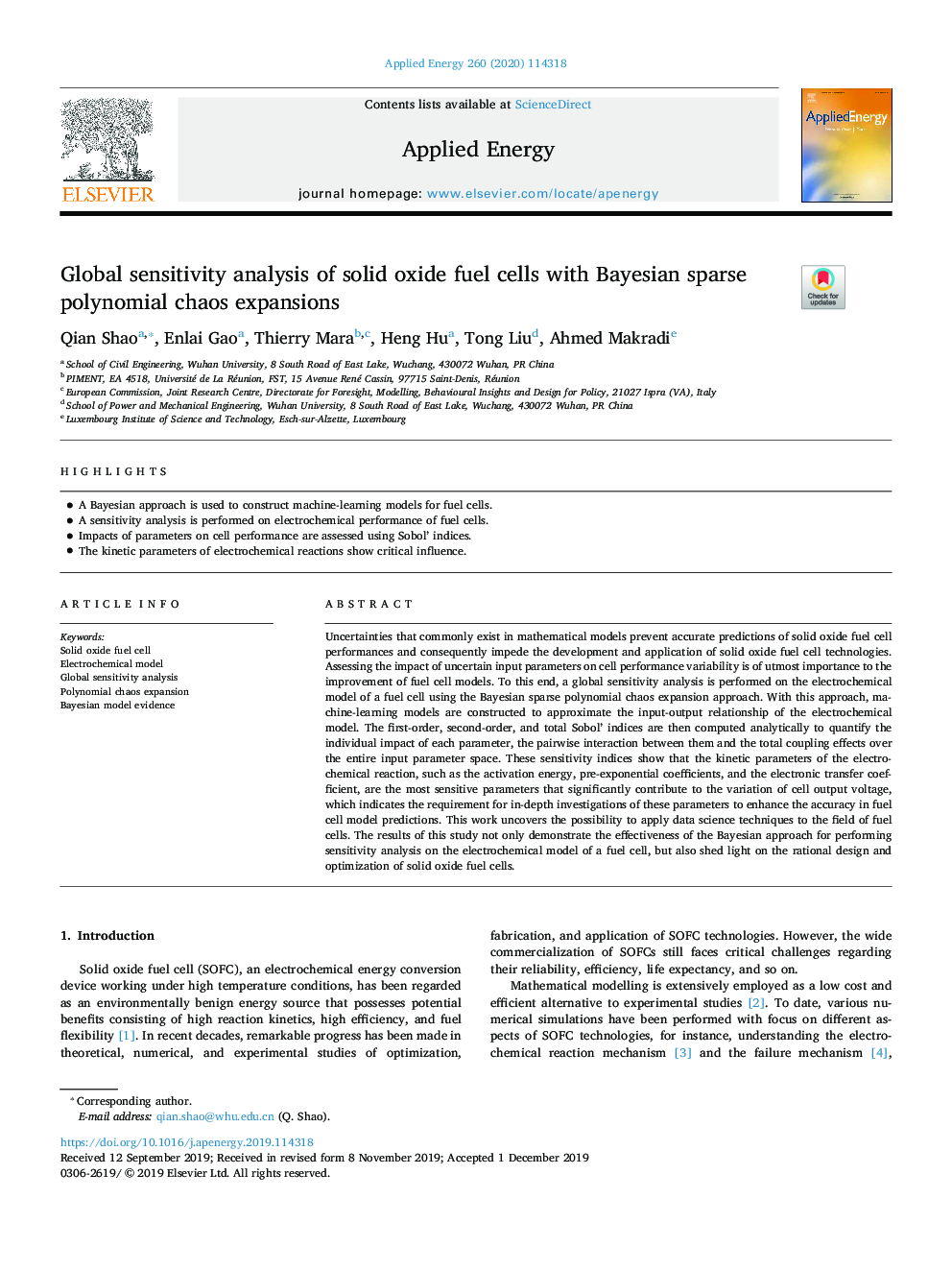| Article ID | Journal | Published Year | Pages | File Type |
|---|---|---|---|---|
| 13418631 | Applied Energy | 2020 | 14 Pages |
Abstract
Uncertainties that commonly exist in mathematical models prevent accurate predictions of solid oxide fuel cell performances and consequently impede the development and application of solid oxide fuel cell technologies. Assessing the impact of uncertain input parameters on cell performance variability is of utmost importance to the improvement of fuel cell models. To this end, a global sensitivity analysis is performed on the electrochemical model of a fuel cell using the Bayesian sparse polynomial chaos expansion approach. With this approach, machine-learning models are constructed to approximate the input-output relationship of the electrochemical model. The first-order, second-order, and total Sobol' indices are then computed analytically to quantify the individual impact of each parameter, the pairwise interaction between them and the total coupling effects over the entire input parameter space. These sensitivity indices show that the kinetic parameters of the electrochemical reaction, such as the activation energy, pre-exponential coefficients, and the electronic transfer coefficient, are the most sensitive parameters that significantly contribute to the variation of cell output voltage, which indicates the requirement for in-depth investigations of these parameters to enhance the accuracy in fuel cell model predictions. This work uncovers the possibility to apply data science techniques to the field of fuel cells. The results of this study not only demonstrate the effectiveness of the Bayesian approach for performing sensitivity analysis on the electrochemical model of a fuel cell, but also shed light on the rational design and optimization of solid oxide fuel cells.
Keywords
Related Topics
Physical Sciences and Engineering
Energy
Energy Engineering and Power Technology
Authors
Qian Shao, Enlai Gao, Thierry Mara, Heng Hu, Tong Liu, Ahmed Makradi,
